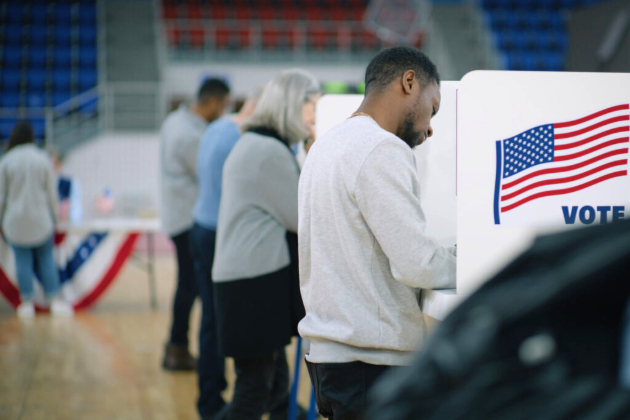US Hospitals Rush to Find Beds for Surge of Virus Patients
Voice of America
26 Mar 2020, 18:05 GMT+10

SEATTLE, WASHINGTON - With her due date fast approaching, Kelly McCarty packed a bag with nursing tops, a robe, slippers and granola bars. Last week's ultrasound, she said, showed "this baby is head down and ready to go."
But the new coronavirus has thrown her a curveball, bouncing her and about 140 other expectant moms from their first-choice hospital to another 30 minutes away. The birth unit at the Edmonds, Washington, hospital is needed for COVID-19.
With capacity stretched thin, U.S. hospitals are rushing to find beds for a coming flood of patients, opening older closed hospitals, turning single rooms into doubles and re-purposing other medical buildings.
Louisiana is making deals with hotels to provide additional hospital beds and has converted three state parks into isolation sites for patients who can't go home. Illinois is reopening a 314-bed suburban Chicago hospital that closed in September.
In New York, the city's convention center is being turned into a temporary hospital. At Mount Sinai Morningside hospital, heart surgeons, cardiologists and cardiovascular nurses now care for coronavirus patients in a converted cardiac unit. Floating hospitals from the U.S. Navy are heading to Los Angeles and, eventually, New York. Military mobile hospitals are promised to Washington state.
Simple math is spurring hospital leaders to prepare. With total U.S. cases doubling every three days, empty intensive care unit beds, needed by an estimated 5% of the sick, will rapidly fill.
U.S. hospitals reported operating 74,000 ICU beds in 2018, with 64% filled by patients on a typical day. But available ICU beds are not evenly distributed, according to an Associated Press analysis of federal data on hospitals that provided a cost report to Medicare in fiscal year 2018.
The AP found more than 7 million people age 60 and older - those most at risk of severe COVID-19 illness - live in counties without ICU beds. AP included ICU beds in coronary units, surgical units and burn units in the count.
"Better to be over-prepared than react in the moment," said Melissa Short, who directs women's health for Seattle's Swedish Medical Center, which is using data from China and Italy as it attempts to double its capacity to 2,000 beds.
In South Korea, some died at home waiting for a hospital bed. In northern Italy, an explosion of cases swamped the hospital system. Video and photos from two Spanish hospitals showed patients, many hooked to oxygen tanks, crowding corridors and emergency rooms.
About 10 days ago, Dr. Tanya Sorensen got a call from the doctor leading the response to the virus at Washington state's Swedish Medical Center. How could the system consolidate its birth services to keep healthy delivering moms away from the sick?
"It took me aback," said Sorensen, medical director for the hospital system's women's services. "It brought home the fact that we are going to be facing a huge surge of cases of COVID very soon."
Swedish's Edmonds facility - where McCarty had planned to deliver - announced Saturday it is closing its 7th floor birth center temporarily, gaining 35 beds for the expected influx. McCarty will go instead to an affiliated hospital in Everett.
"They need more beds. If they can open up a whole floor, I understand," said McCarty, a public school teacher who is busy coaching colleagues about online learning during the state's lockdown.
For most people, the coronavirus causes mild or moderate symptoms, such as fever and cough that clear up in two to three weeks. For some, especially older adults and people with existing health problems, it can cause more severe illness, including pneumonia, and death.
If other countries have the same experience as China, 15% to 20% of COVID-19 patients will have severe illness. About 5% could become sick enough to require intensive care.
Equipment is a challenge. About 20% of U.S. hospitals said they didn't have enough breathing machines for patients and 97% were reusing or otherwise conserving N95 masks, according to a survey conducted last week by hospital group purchasing organization Premier.
Who will staff the needed ICU beds is keeping U.S. hospital leaders awake at night.
In western Massachusetts, Nancy Shendell-Falik, a nurse turned hospital executive, is planning Baystate Health's response. The system's community hospitals and flagship hospital in Springfield are finding space for 500 additional beds, including 140 ICU beds.
She asks herself: Will cross-training staff and working in teams help the ICU nurses handle a surge of patients needing breathing machines? Will there be enough masks, gowns and face shields? She also worries about exhaustion, burnout and nurses falling sick.
"Beds don't take care of patients. We need the staff to do so," she said.
During 9/11, she worked as a chief nurse at a hospital eight miles from the twin towers. She also worked at a Boston hospital that took in casualties of the 2013 marathon bombing.
"Those things changed our world forever, but they were very time-limited activities. What's scary about this," she said, is "we don't know the duration."
This weekend, McCarty and her husband plan to drive to the Everett hospital, a trial run for when she goes into labor. When her contractions start, they'll call her dad to come stay with their 4-year-old daughter. McCarty is taking it in stride, knowing the depth of the need.
"If it was my first child, I think it would be a little harder," McCarty said of adjusting her birth plan for COVID-19. "I know what it's like and I've been through it before. Where I deliver isn't necessarily that big of a deal. I'm happy to oblige."
 Share
Share
 Tweet
Tweet
 Share
Share
 Flip
Flip
 Email
Email
Watch latest videos
Subscribe and Follow
Get a daily dose of Chicago Chronicle news through our daily email, its complimentary and keeps you fully up to date with world and business news as well.
News RELEASES
Publish news of your business, community or sports group, personnel appointments, major event and more by submitting a news release to Chicago Chronicle.
More InformationBusiness
SectionStanstead-Derby Line free passage halted as US tightens rules
STANSTEAD, Quebec: U.S. authorities have decided to end a long-standing unwritten rule that allowed people from Stanstead, Quebec,...
Wall Street closes down, AI investors feel the heat
NEW YOKK, New York - U.S. stocks fell sharply Wednesday with tech stocks, mainly those associated with AI, taking the brunt of the...
Canada moves to cut trade barriers as US tariff threat grows
TORONTO, Canada: As the threat of U.S. tariffs looms, Canada is looking inward to strengthen its economy by removing domestic trade...
Ticketing platform StubHub to float IPO
NEW YORK CITY, New York: StubHub is getting ready to hit the trading floor. The popular ticketing platform has officially filed to...
Wall Street on edge but major indices notch up marginal gains
NEW YORK, New York - The rally in U.S. stocks petered out Tuesday, however tech stocks made a modest gains, while the industrials edged...
Canada’s carbon tax faces pushback from politicians, oil industry
CALGARY, Canada: Canada's carbon pricing policy, long a central pillar of its climate strategy, is facing mounting pressure as political...
Illinois
SectionNew York court blocks law allowing over 800,000 non-citizens to vote
NEW YORK CITY, New York: New York State's highest court has struck down a law this week that would have allowed over 800,000 legal...
Regulatory hurdles may leave US behind China in autonomous tech
WASHINGTON, D.C.: Industry leaders are pushing the Trump administration to clear regulatory obstacles slowing the rollout of self-driving...
Coby White-led Bulls look to remain hot vs. Lakers
(Photo credit: Jonathan Hui-Imagn Images) The Chicago Bulls are brimming with belief following a fruitful road trip as they return...
Kings look to stay in playoff picture as they host Trail Blazers
(Photo credit: Cary Edmondson-Imagn Images) The Sacramento Kings are mired in a four-game losing streak for the second time this...
Hawks, Heat battle for play-in position in late-season matchup
(Photo credit: Jim Rassol-Imagn Images) A pair of likely Eastern Conference play-in teams will square off on Thursday, when the Miami...
Dodgers ready to receive rings -- and to face Tigers' Tarik Skubal
(Photo credit: Jayne Kamin-Oncea-Imagn Images) On Major League Baseball's day of aces, two of the best will oppose each other Thursday...













